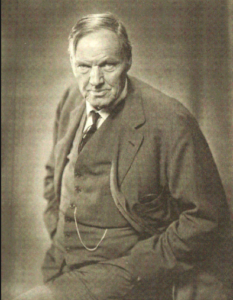 Every knowing lawyer seeks a jury of the same sort of people as their client; people who will be able to imagine themselves in the same situation and realize what verdict the client wants.
Every knowing lawyer seeks a jury of the same sort of people as their client; people who will be able to imagine themselves in the same situation and realize what verdict the client wants.
Choosing jurors is always a delicate task. The more a lawyer knows of life, human nature, psychology, and the reactions of the human emotions, the better equipped for the subtle selection of the so-called “twelve people, good and true.” In this undertaking, everything pertaining to the prospective juror needs to be questioned and weighed: this means all matters that combine to make the person; all of these qualities and experiences have left their effect on ideas, beliefs and fancies that inhabit the juror’s mind. Understanding of all this cannot be obtained too bluntly. It requires finesse, subtlety and guesswork.
A skillful lawyer does not hunt for learning or intelligence in the box; [the skillful trial lawyer] knows that all beings act from emotions and instincts, and that reason is not a motive factor. … The nature of the person is the element that determines the juror’s bias for or against our client. [The juror’s]… intellect can always furnish… good reasons for following their instincts and emotions. Many [seemingly] irrelevant issues… are not so silly as they seem. There is no sure rule by which one can gauge any person.
It is not the law alone or the facts that determine the results. Always the element of luck and chance looms large. A jury of twelve is watching not only the evidence but the attitude of each lawyer, and the parties involved, in all their moves. Every step is fraught with doubt, if not mystery.
Often a casual remark may determine a vital situation. In all questions people are frequently influenced by some statement which, spoken at the eventful time, determines fate. In fact, all that occurs in life is an endless sequence of events resulting from the wildest chance.
Clarence Darrow, How to Pick A Jury (Esquire Magazine 1936)(edited/redacted by PAT)(Photograph Courtesy of the Clarence Darrow Foundation).
Post Footer automatically generated by Add Post Footer Plugin for wordpress.


As I read this post I realize how delicate it is to choose a jury. Of course our client wants a favorable jury for his case, and depends on us to make this happen. When we feel the case and transfer this feeling to the jury we have our highest likelihood for success.
The notion that we want jurors who are as much like our clients as possible, is one that requires some thought about what kind of “likeness” we do want. People in the same trade or occupation or the same socioeconomic background or the same racial/ethnic background, the same political party or the same religion may or may not be “good” in any particular case. But certainly we want empathetic people. Among other things. And I’m not sure that, overall, any group can be said to be more empathetic than any other group. It can be a really tough job. And the vast majority of we lawyers are, frankly, not all that well equipped to make those judgments. I find it impossible to fully set aside my own biases in a way that allows me to appropriately evaluate potential jurors. Which is why finding and hiring, and paying attention to good jury consultants is a pretty good idea!